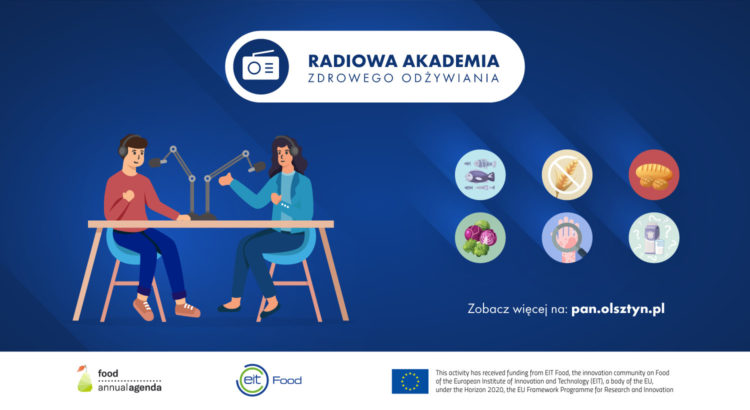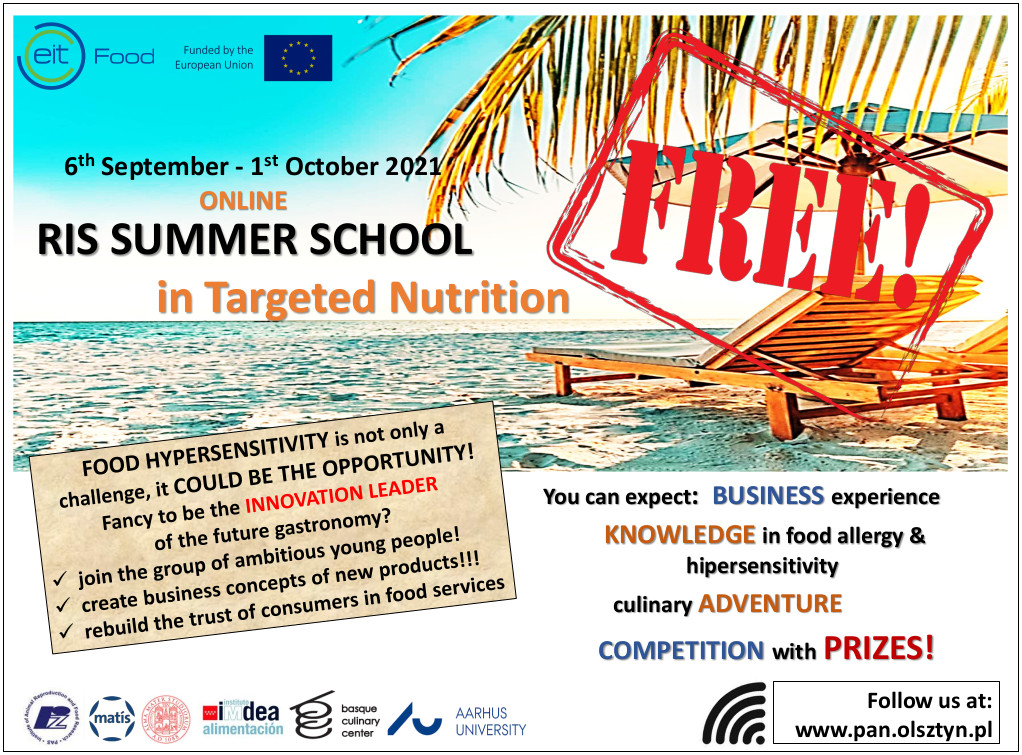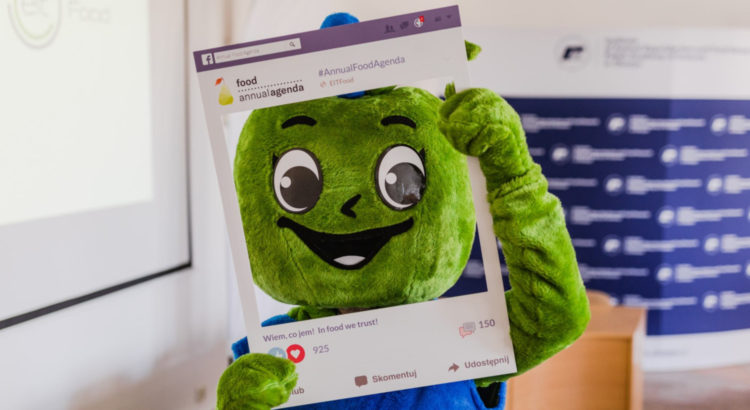EN
Radio Academy of Healthy Eating vol. 2
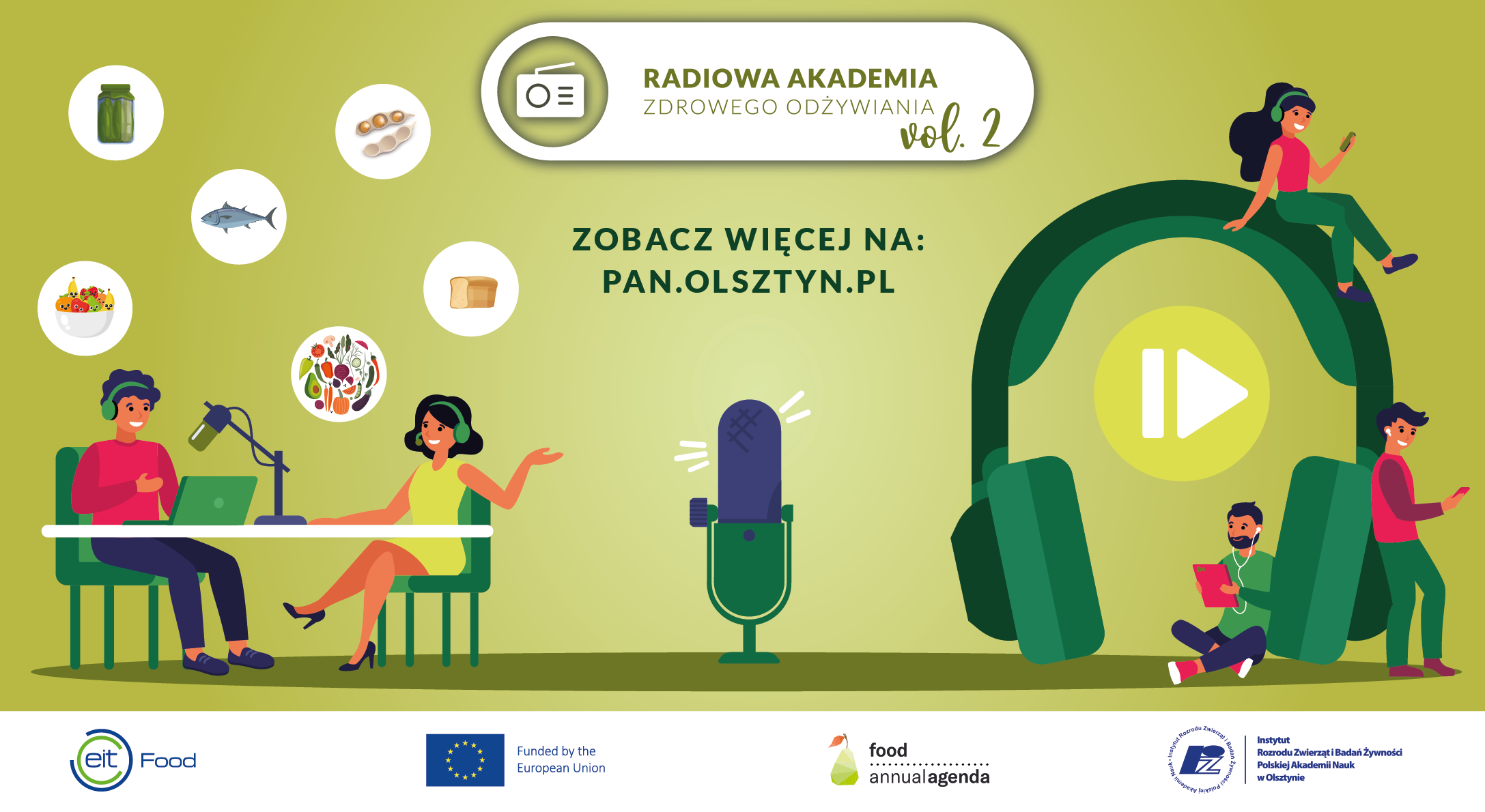
Radio Academy of Healthy Eating in the air again! This is the 2nd edition of a popular series of radio broadcasts starring scientists from the Institutte of Animal Reprouction and Food Research PAS. We are back with a next serving of knolwedge about food and healthy eating habits.
From August 10 to September 10, every Tuesday and Frida 1:00-2:00 PM, you will get a unique Chance to meet with the food research experts – microbiologists, chemists, biologists and food technlogists, who will familiarise you the facts and curiosities on heatly eating and dispel myths around nutriton. The campaign is a part of the EIT Food #AnnualFoodAgenda project.
Can maternal diet influence the health of both her children but also the next generations? What is a TOFI syndrome when it comes to obesity? How can we protect oursleves from pathogenic bacteria in our kitchen? Why is it worth to reach for fish from close breeding systems? Who flexitarians are? Are you one of them? What role does rasperries play in a fight against liver malfunctions? How to produce natural probiotics yourself? These are just a few topics the researchers will elaborate upon in the upcoming #AnnualFoodAgenda campaign.
2021 Professorship Call at IARFR PAS, ERA Chair [Nutrigenomics]

Institute of Animal Reproduction and Food Research of Polish Academy of Sciences (IAR&FR PAS) is looking for an experienced researcher with leadership skills to establish an interdisciplinary research group to conduct cutting edge omics based research in the area of nutrition.
This position offers independence and autonomy of research as well as it requires experience in initiation and preparation of national and international grant applications.
Please download full announcement, if interested.
Files: 2021 Professorship Call at IAR&FR PAS, Poland
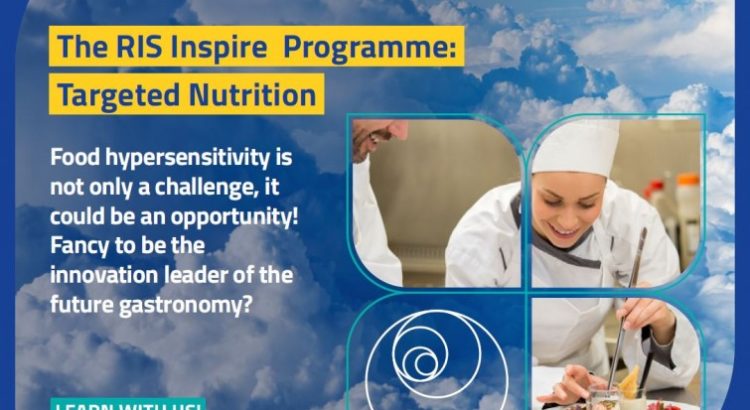
EIT Food RIS Summer School in Targeted Nutrition
EIT Food RIS Summer School in Targeted Nutrition
6th September – 1th October 2021 – Online
WOULD YOU LIKE TO BECOME ONE OF THE INNOVATION LEADERS OF THE FUTURE GASTRONOMY SECTOR?
Apply now to RIS Summer School in Targeted Nutrition powered by EIT Food. Join the group of ambitious and creative young people!
Get support from multinational consortium of food researchers, industry experts, and professional chefs and co-create new concepts and products that address the needs and challenges faced by allergic and hypersensitive consumers.
In our school, you will get state-of-the-art knowledge and skills around management of food safety hazards and the development of targeted nutrition solutions.
You can rebuild the trust of consumers in food services, just believe that food hypersensitivity is not only a challenge but also an opportunity!
YOU CANNOT MISS IT!!!
More information on how to apply SOON.

New roles
In 2021 researchers of Institute of Animal Reproduction and Food Research were nominated for new functions related to the scientific and editorial activity within the framework of organisations operating outside the structure of the Institute.
Multidisciplinary Digital Publishing Institute (MDPI) nominated prof. Ryszard Amarowicz for Associate Editor in the Analytical Chemistry section of Molecules Journal. At the same time Prof. Amarowisz was invited to the Editorial Board of Food Chemistry – Molecular Sciences Journal (Elsevier).
Prof. Agnieszka Wacławik joined the Editorial Board of Biology of Reproduction Journal as a Member of the Board of Reviewing Editors.
Dr. Wiesław Wiczkowski was nominated for the Board Vice President of the Polish Metabolomics Society for 2021 – 2025.
Congratulations!
Reproductive Biology with a new Impact Factor and CiteScore
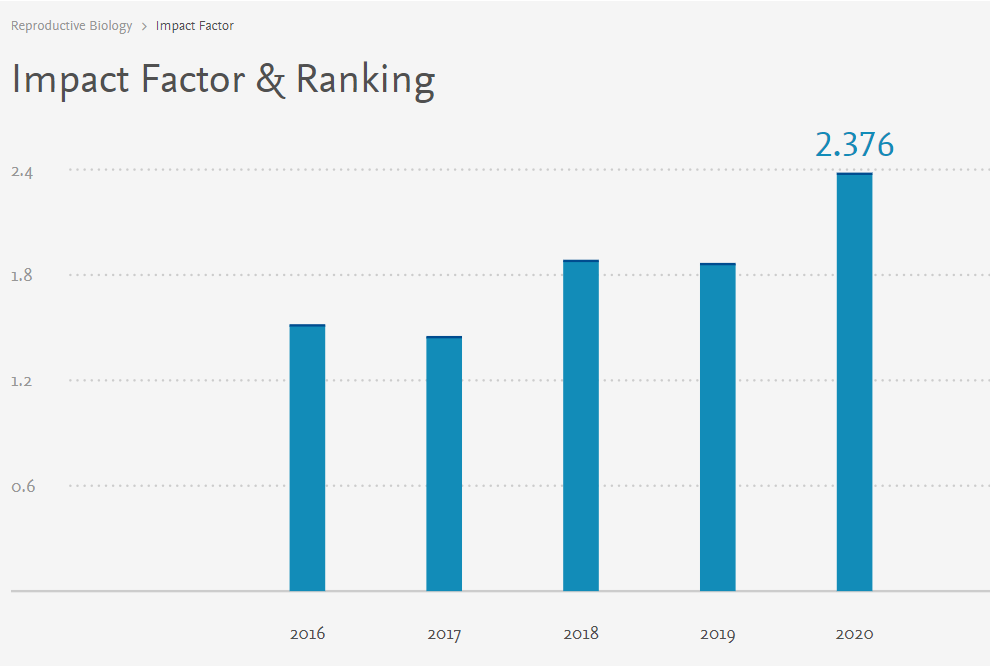
In the latest Journal Citation Reports citation ranking, Reproductive Biology quarterly was classified in the fourth quartile (Q4) with IF2020 = 2.376 and IF5 Year = 2.543. This is the highest Impact Factor in the history of the journal. Compared to last year’s assessment, the indicator increased by 0.514 points. (więcej…)
